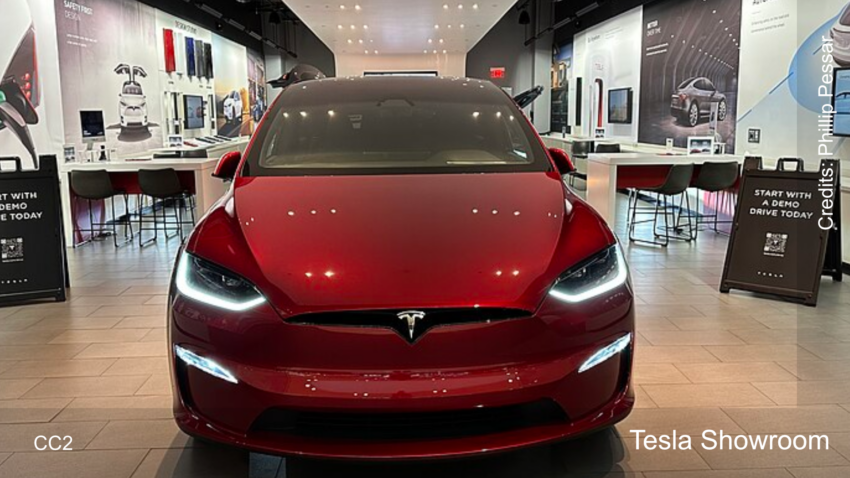Shares of Tesla experienced a significant boost on Wednesday, with investors speculating on potential benefits from Donald Trump’s possible return to the White House. Analysts suggest that the electric vehicle giant and its CEO, Elon Musk, might thrive under a Trump administration. This environment may particularly impact subsidies for alternative energy and electric vehicles, which could disadvantage smaller competitors.
- Tesla’s Potential Advantage Under Trump: Investors speculate that a Trump presidency could favor Tesla by reducing subsidies for alternative energy, which may challenge smaller EV competitors more than Tesla, given its established market presence.
- Market Dominance and Tariff Impacts: Tesla holds a nearly 49% share of the U.S. EV market, a position that might be further strengthened if tariffs restrict cheaper Chinese EV imports, reducing competitive pressures.
- Challenges and Growth: Despite facing sales declines and an investigation into its “Full Self-Driving” technology, Tesla saw a 17.3% profit increase in Q3, with a stock price gain of 16.1% year-to-date.
- Musk’s Political Engagement: Elon Musk has shown strong political support for Trump, with substantial donations and an active PAC, possibly seeking policies that could benefit Tesla in the future.
Tesla’s market position remains robust, setting it apart in a potential non-subsidy landscape. According to a Wedbush analyst, Tesla’s unmatched scale and scope could offer a clear competitive advantage. Increased tariffs on Chinese imports might also hinder the entry of cheaper Chinese electric vehicles into the U.S. market, further solidifying Tesla’s position.
Tesla’s market dominance continues, holding a 48.9% share of electric vehicle sales in the U.S. through mid-2024, as per the U.S. Energy Information Administration. However, the company’s share price surge contrasts with losses faced by rivals like Nio, Rivian, and Lucid Group, which saw declines of 5.3%, 8.3%, and 5.3% respectively.
The Inflation Reduction Act, signed into law by President Joe Biden in 2022, currently supports clean energy subsidies. It offers tax credits for manufacturers and consumers of electric vehicles. Despite this, the shifting political landscape might alter the dynamics of these incentives.
Musk’s political contributions have been substantial, with at least $119 million directed towards supporting Trump’s campaign. His financial involvement includes a daily pledge of $1 million for voters signing a petition for his political action committee.
Tesla has faced challenges this year, with declining sales and profits in the first half. However, profits showed a 17.3% increase in the third quarter. The U.S. government has also opened an investigation into Tesla’s “Full Self-Driving” system after several crashes, including a fatal incident. This investigation covers about 2.4 million vehicles from model years 2016 through 2024.
Despite these hurdles, Tesla’s stock has demonstrated resilience, showing a 16.1% gain for the year after recent increases. The company faces scrutiny over its autonomous vehicle technology, which has been in development for nine years but still raises reliability concerns.

